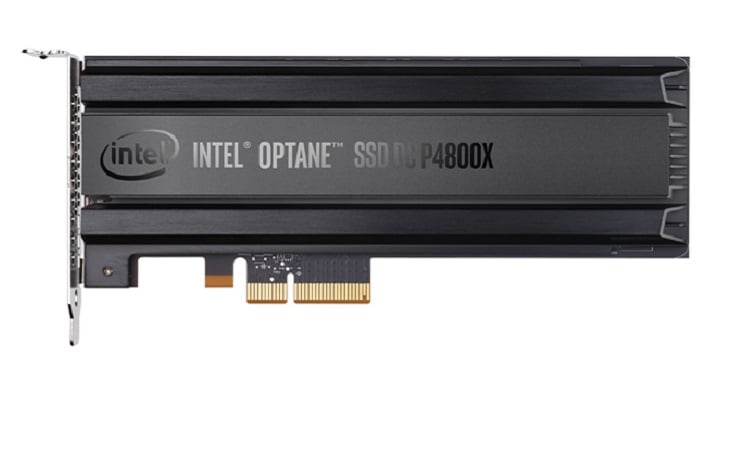Intel has just doubled the capacity and cut size in half for its Optane SSD DC P4800X Series which is intended for data centers. The drive is now available in a new 750GB capacity in both half-height, half-length add-in card and a hot-swappable 2.5-inch U.2 form factor.
The drive is intended to pair with Intel Xeon Scalable processors to process storage workloads, like SAN and software defined storage, as well as cloud, database, big data and high-performance computing workloads.
Intel has long pushed Optane technology for data centers as the perfect combination of memory and storage with low latency, high endurance, outstanding quality of service and high throughput, creating a new data tier that increases scale per server and reduces transaction costs.
The Optane SSD DC P4800X Series is available as part of the Intel Select Solutions program and through additional OEMs, cloud service providers and distributors starting this month.
Why does the data center need SSDs?
Although the price is SSD storage is still roughly five times that of regular magnetic hard drives, comparing the two is still a matter of apples versus oranges. Instead of direct performance comparisons, from a data center perspective there is also the consideration of size and power consumption of the facility.
Ultra-high capacity SSDs can substantially reduce the storage footprint of facilities. The cost of replacing older equipment would be vastly less than building an entirely new data center simply because you’re out of space.
SSDs are also more suitable for environments that are read-intensive, requiring data to be written once and then analyzed again and again. Again, this appeals to industrial-strength usage of those drives, which is good for data centers.
By reducing the total raw capacity available in exchange for effective capacity, there is also the potential for more savings in that sense. Network loads also reduce, along with latency in memory loading.


